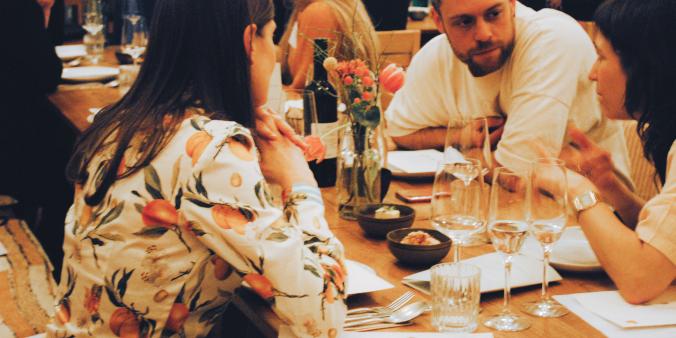
When living or working outside the Netherlands for international projects or an art residency, where can you go in case you witness or experience transgressive behaviour, such as (sexual) harassment, discrimination, or intimidation?
Starting as an online movement in 2017, #MeToo has led to a wider and more intersectional debate on transgressive behaviour in the cultural sector, including (sexual) harassment and violence, discrimination, intimidation, and bullying. In recent years, we have witnessed many developments concerning transgressive behaviour in the cultural sector. This includes more media coverage of incidents and perpetrators, renewed regulations and codes for cultural organisations, and support centres and helplines for victims. To prevent such incidents, several steps have already been taken, such as the use of wellbeing facilitators on productions in the UK, the presence of intimacy coordinators on film sets in, among other countries, Germany, and the existence of external counsellors (vertrouwenspersonen) in the Netherlands.
In addition, support centres (steunpunten) have been established to assist cultural workers. The number of reports in, for example, the Netherlands and Germany is increasing, and unfortunately, there is still a high estimate of unreported cases. Cultural workers are often not aware of their rights, existing codes of conduct, and contact points. Especially when working abroad, it can be unclear where to receive help.
When having witnessed or experienced transgressive behaviour, we strongly advise you to contact the support centre in the specific country where the incident took place. Below, DutchCulture has mapped support centres in Belgium, Germany, France, the Netherlands, and the UK to inform you on how to report incidents and where to receive support.
Belgium
- Engagement Arts is an artist-led movement tackling sexual harassment, sexism and abuse of power in the Flemish arts field, through the lens of intersectional feminism. They help with offering free advice and support to individuals and communities facing transgressive behaviour, discrimination and/or unfair practices in the arts. They offer a confidential conversation to listen to your experience and to suggest the next steps. Engagement Arts also offers trainings and workshops, gives lectures and develops educational tools.
Engagement is mostly active in Flanders, where they receive their funding, but are also available for people working in Brussels and Wallonia.
How to get in touch
You can write an email to contact@engagementarts.be.
- Flemish Reporting Centre for Transgressive Behaviour offers free support to everybody who has experienced or witnessed transgressive behaviour in, among other sectors, the cultural sector in Flanders. An employee listens to your story and helps you find answers to your questions. Based on this, potential follow-up steps are suggested, for example a referral to legal advice. The staff can also organise and moderate reconciliation meetings with the perpetrator.
How to get in touch
From Monday to Friday, you can call them at +32 80013184, chat with them via the website, or send them an email via the contact form or meldpunt@vlaanderen.be.
France
The Psychological and Legal Support Unit is a service operated by Audiens, a French non-profit, joint-governance social protection group for the cultural sector. The unit was created by several partners: the Fédération des entreprises du spectacle vivant, de la musique, de l’audiovisuel et du cinéma (Fesac), along with multiple trade unions. The unit is the official contact point for victims and witnesses of sexual harassment and violence. The team of this specific unit offers free psychological and legal advice. The helpline is open to all professionals working in the French cultural and creative industries, regardless of nationality. Witnesses and workplace representatives in charge of preventing and addressing harassment and gender-based or sexual violence can also contact the unit for guidance.
At the moment, the service is tailored to sexism/sexual violence in the cultural sector, excluding bullying or other forms of transgressive behaviour. We will keep this page updated in case of new developments.
How to get in touch
You can call them from Monday to Friday, from 9 am to 1 pm and from 2 pm to 6 pm, at +33 187203090. You can also email them via violences-sexuelles-culture@audiens.org by specifying your name, surname and telephone number. You will be contacted no later than the working day following your request.- Please find a list of various associations in France that work to combat gender-based and sexual violence here.
Germany
Themis Vertrauensstelle is the German counselling centre against sexual harassment and violence in the cultural and media sector. They provide free and independent support to individuals (victims, witnesses, and employers) in the arts and media industry. They also arrange more in-depth legal and/or psychological counselling sessions. Besides that, Themis hosts webinars, trainings and educations programmes for cultural professionals and organisations about sexual harassment and violence in working environments.
How to get in touch
You can reach them on Mondays, Wednesdays and Thursdays via phone at +49 3023632020 or send them an email at beratung@themis-vertrauensstelle.de.The Federal Anti-Discrimination Agency offers (legal) support to everybody experiencing discrimination (based on your ethnic origin, religion or ideology, age, gender, sexual identity or disability) or sexual harassment.
How to get in touch
Use their contact form or send an email to beratung@ads.bund.de.Diversity Arts Culture is a design and consultation office for diversity development in the cultural sector in Berlin.
How to get in touch
You can send an email to info@diversity-arts-culture.berlin or give them a call at +49 303030444 24.
Netherlands
Mores is the Dutch support and advice centre for transgressive behaviour in the cultural, creative, and media sector. This includes discrimination, sexual intimidation, violence, intimidation and bullying. Mores provides a safety net for employees and students in the cultural sector, who experience transgressive behaviour and are unable or unwilling to turn to a confidential counsellor within their own organisation. Mores' confidential counsellors offer a listening ear and will discuss the available options with you. You decide which next steps you want to take - or not: you remain in control. The confidential counselor supports you in making your choice and can refer you to further psychological support, coaching, or legal assistance.
Mores also creates awareness and shares its expertise through webinars, events and online tools with the aim for organizations and professionals to learn from each other.
How to get in touch
You can reach out to the counsellors via their email addresses mentioned on the website or text them on WhatsApp at +31 612163326.
United Kingdom
In general, there is not one overarching support centre in the UK. When working on cultural projects in the UK, we advise to read the standards of CIISA (Creative Industries Independent Standards Authority) beforehand to be informed about your rights. CIISA upholds and improves standards of behaviour across the British cultural sector, to prevent and tackle all forms of bullying, harassment, and discrimination. Through the standards, CIISA’s vision is to create safe and inclusive workplaces for cultural professionals. CIISA plans to introduce a confidential reporting service by the end of the 2025/26 business year.
In the meantime, you can find more resources to receive help here. Moreover, below you can find several support associations per discipline that you can contact if you experience transgressive behaviour:
Equity is a performing arts and entertainment trade union and can advise you on your rights at work, for example concerning sexual harassment or discrimination.
How to get in touch
You can get in touch by filling in the contact form on the website.Film & TV Charity is an independent charity for everyone behind the scenes in film, TV and cinema. If you are experiencing bullying, harassment or discrimination, their support is available to help you to understand your rights and what options you have.
How to get in touch
If you need urgent support, you can contact their free and confidential 24-hour support line at +44 8000540000.Help Musicians offers a helpline to anyone working in music involved in a bullying or harassment situation, whether you are employed or freelance. When calling the helpline, you will receive a confidential space to share your experience support to resolve your situation guidance and information on your options.
How to get in touch
You can receive non-judgemental support and advice by calling them confidentially for free on +44 8000882045.
Are you aware of any other relevant organisations in Belgium, France, Germany, the UK or elsewhere that should be added to this overview? Do you have any other questions or comments? Please send your suggestions and questions to Astrid Mörk.



